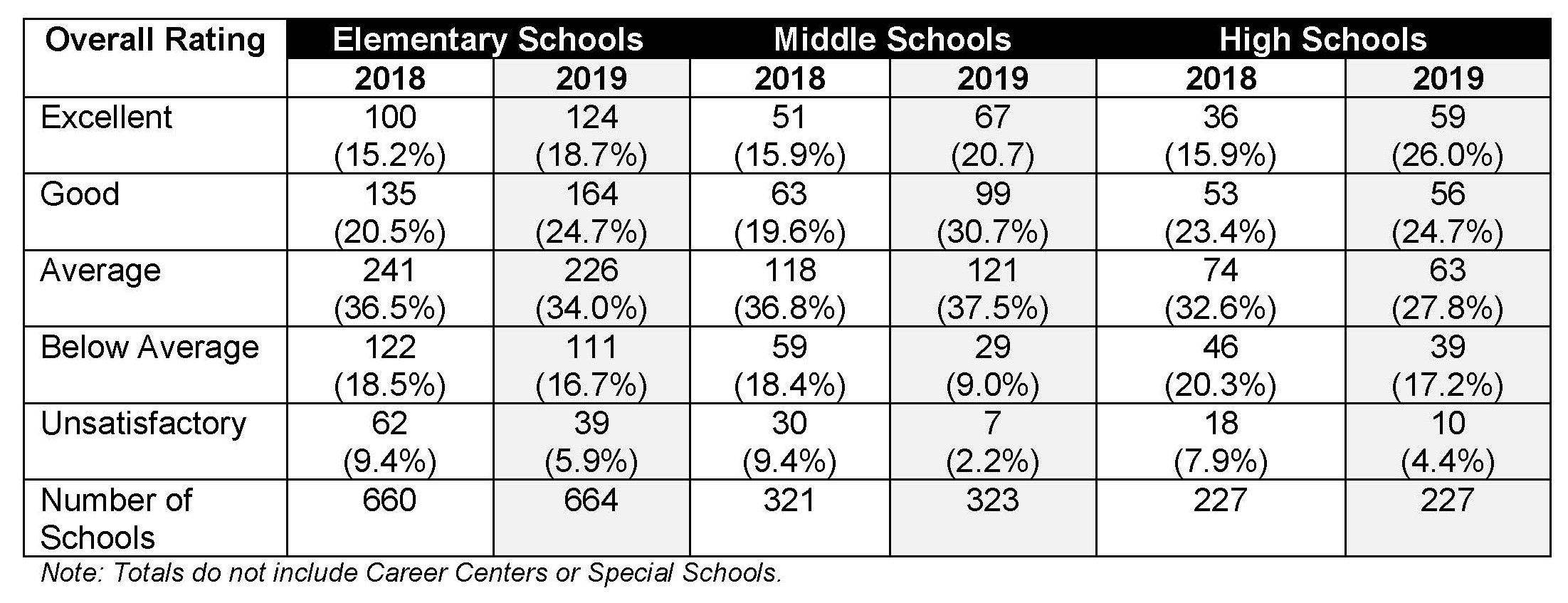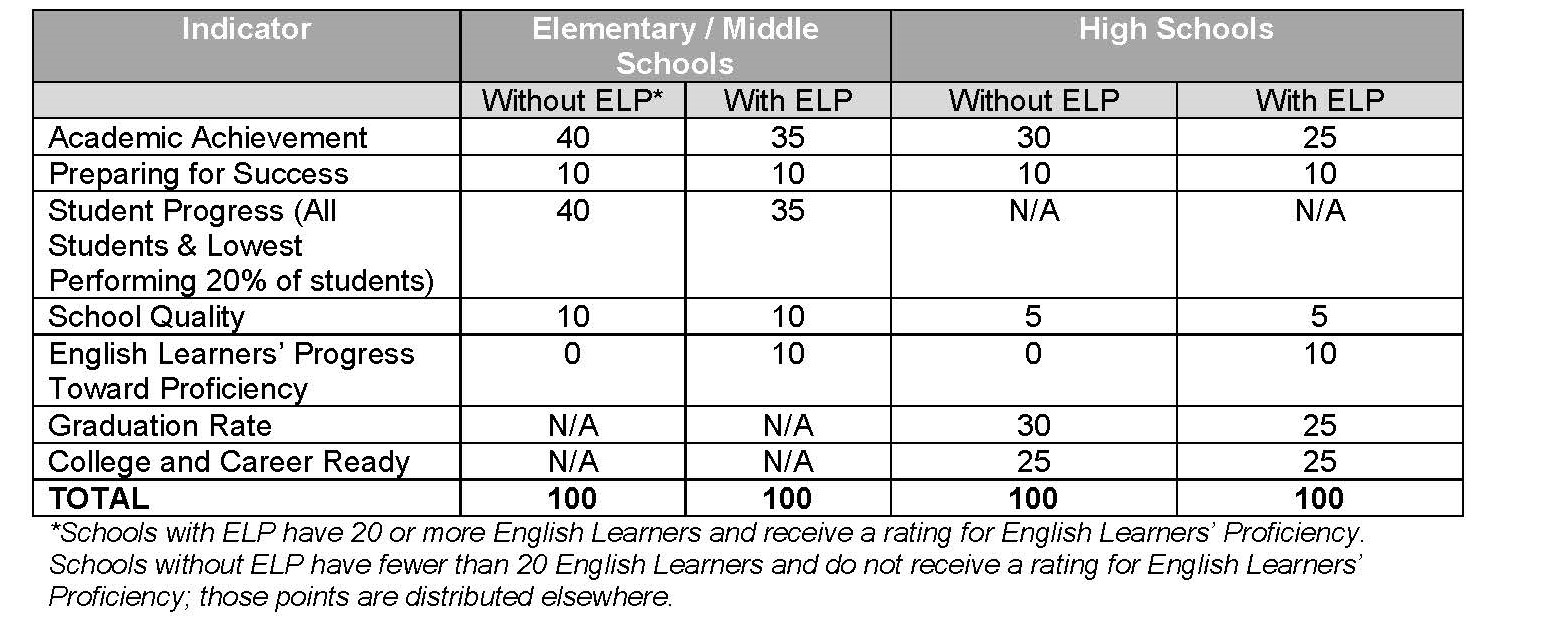Families
 The Official Web Site of the State of South Carolina
The Official Web Site of the State of South Carolina
System designed to measure and incentivize student success toward college and career readiness
Editor's Note: The 2019 School and District Report Cards are available at www.screportcards.com. A detailed breakdown of the ratings breakdown by individual indicator can be found online.
Columbia, October 1, 2019 -- Today, the South Carolina Department of Education released the school report cards, the second release under SC's joint school accountability system, which combined the state and federal accountability systems for public schools. Not to be confused with student report cards, the School Report Cards show improvement in many schools across South Carolina.
Number and percentage of schools receiving Overall Ratings by school year

This year, there was a significant increase in the number of schools rated Excellent and Good, 569 schools compared to 438 schools last year. While student performance increased on a number of statewide measures, large increases were seen in English Learners' Proficiency and Student Engagement (formerly School Quality) indicators. An elementary school with 20 or more English Learners, for example, would see 20 percent of their overall Rating come from the results of these two indicators.
"We are pleased to see indications of progress in our students' learning," stated Ellen Weaver, Chair of the SC Education Oversight Committee (EOC).
Statewide results show one-year increases in SC READY, the English Language Arts and Math assessment for grades three through eighth grade, as well as English I. Results on Algebra I declined statewide.
Weaver stated that the focus of the accountability system is student progress: promoting an environment where all students are given the opportunity to be prepared for life, whether college or careers. Unfortunately, the data from this year's release also shows that many students graduating from high school in South Carolina are not prepared for that next step.
"While 81 percent of students are graduating from high school, this year's results show that only 42 percent are college-ready and 73 percent are career-ready," stated Weaver. "Nearly 20 percent of students don't graduate from high school and of those that do, too many are not fully prepared for the next step. These facts call for urgent action."
The current accountability system allows students to be deemed college-ready if they meet one of the following criteria:
Students are considered career-ready if they meet one of the following criteria:
Weaver stressed the need for continuous improvement not only in schools, but also in any accountability system, mentioning the EOC's upcoming cyclical review of the accountability system, which the committee is directed to perform by state statute.
"We are committed to a thorough review of our accountability system to ensure it is measuring what is meaningful," stated Weaver. "Measures must be transparent, reliable, and provide understandable, actionable information to schools and communities to equip them to help their students succeed."
The online Report Cards, located at www.screportcards.com, reflect data elements and student performance information from the 2018-19 school year. According to Dr. Rainey Knight, Interim Executive Director of the EOC, the report cards are designed to increase accessibility and accountability in South Carolina's public schools by providing easy-to-understand/use information for families and the general public.
Within the system, all elementary, middle, and high schools receive overall ratings based on a 100-point scale. Although school districts and primary schools will receive report cards, they will not be rated. The ratings follow terms outlined in state law: Excellent, Good, Average, Below Average, and Unsatisfactory. Schools also receive ratings on various indicators, such as graduation rate, academic achievement, and school quality.
Weaver again called upon lawmakers, the business and faith communities, educators, families, and other community partners to look at the results and take action to help young people in their areas.
"Providing real hope and opportunity for every student will require each of us to leave our comfort zones and be willing to grow and innovate," stated Weaver. "Bold change is never easy, and success won't occur overnight. But working together, I'm confident we can build a bright education future for all South Carolina students."
How the 100 points are broken down by indicator

|
|